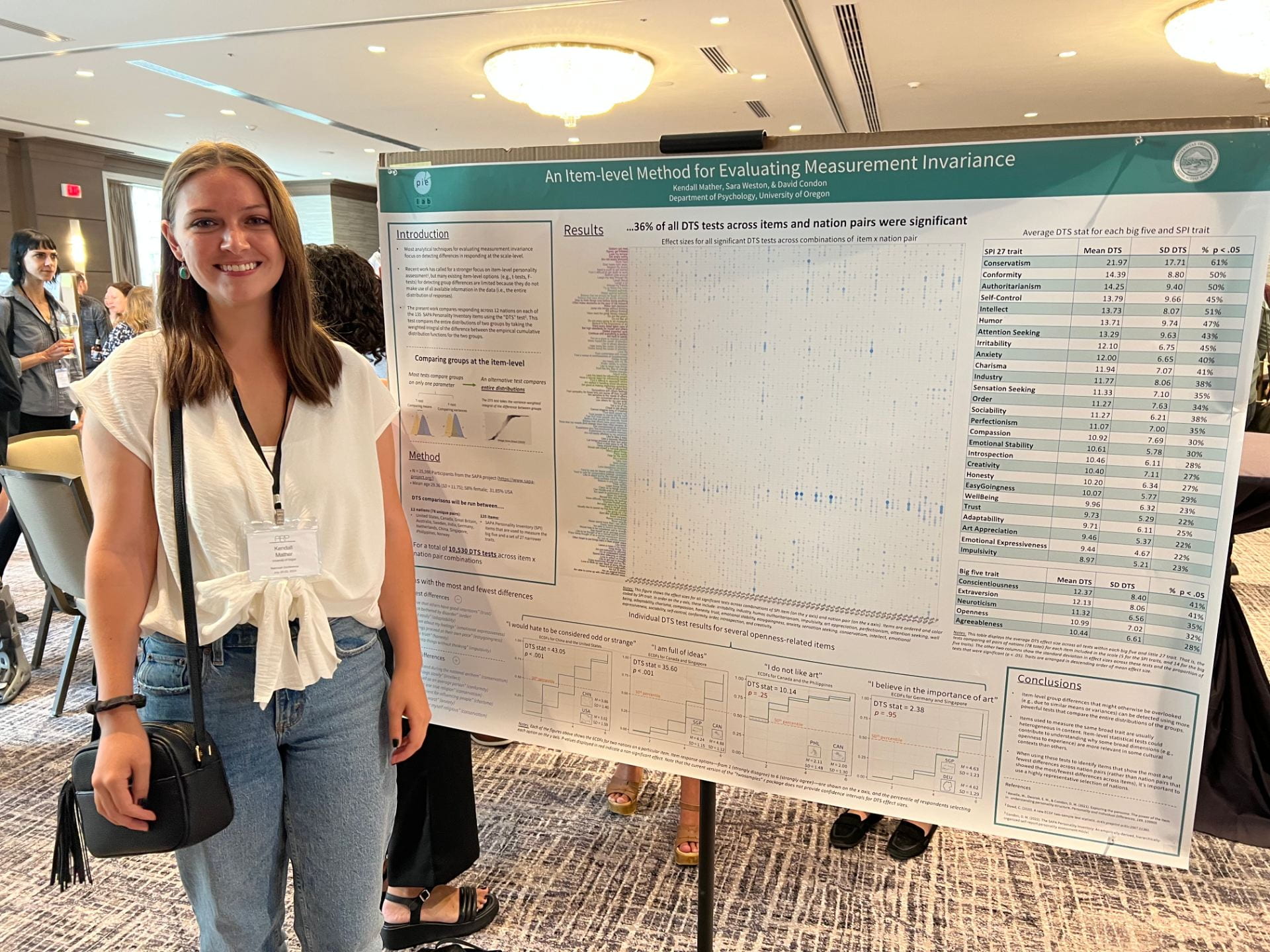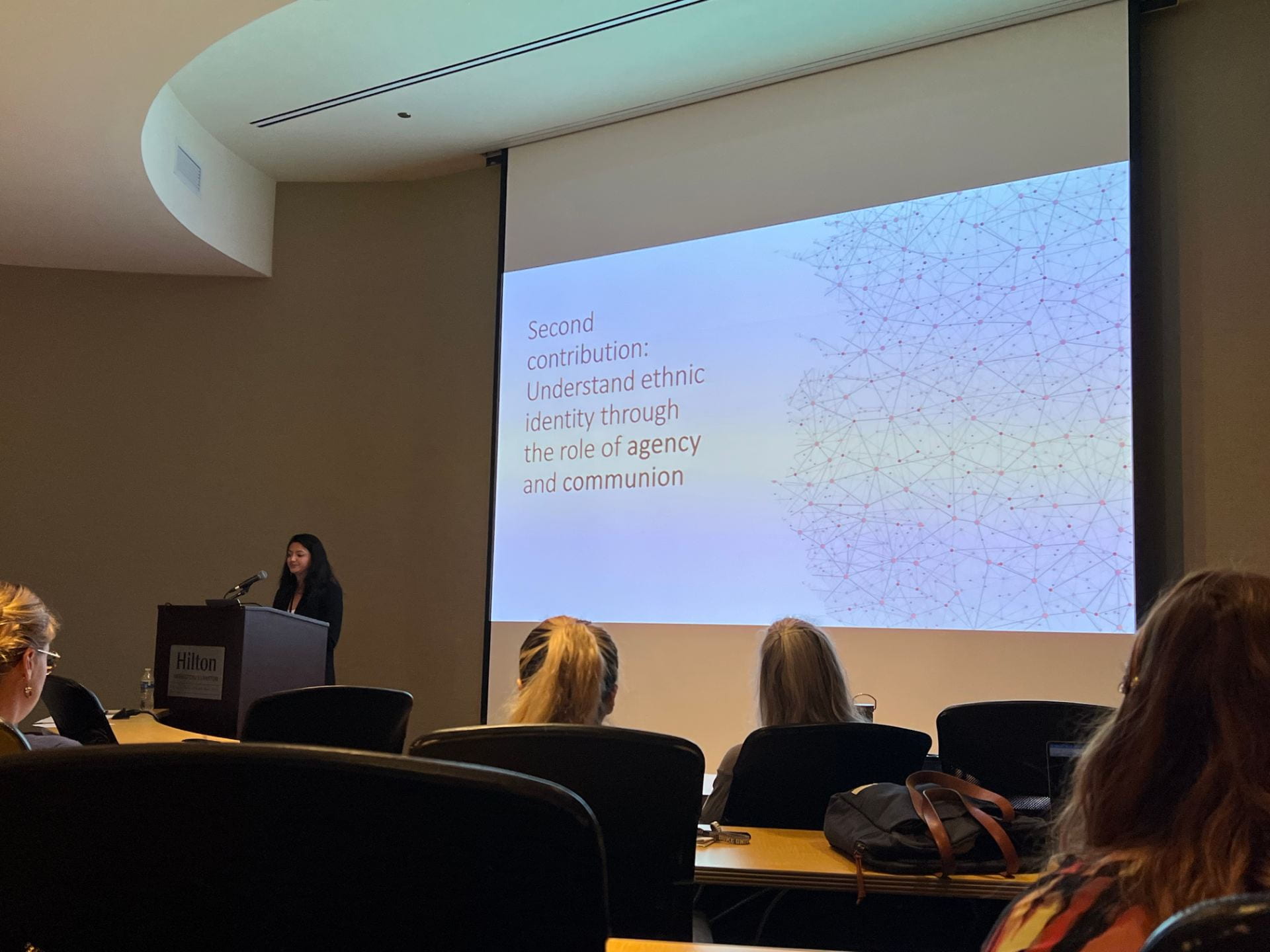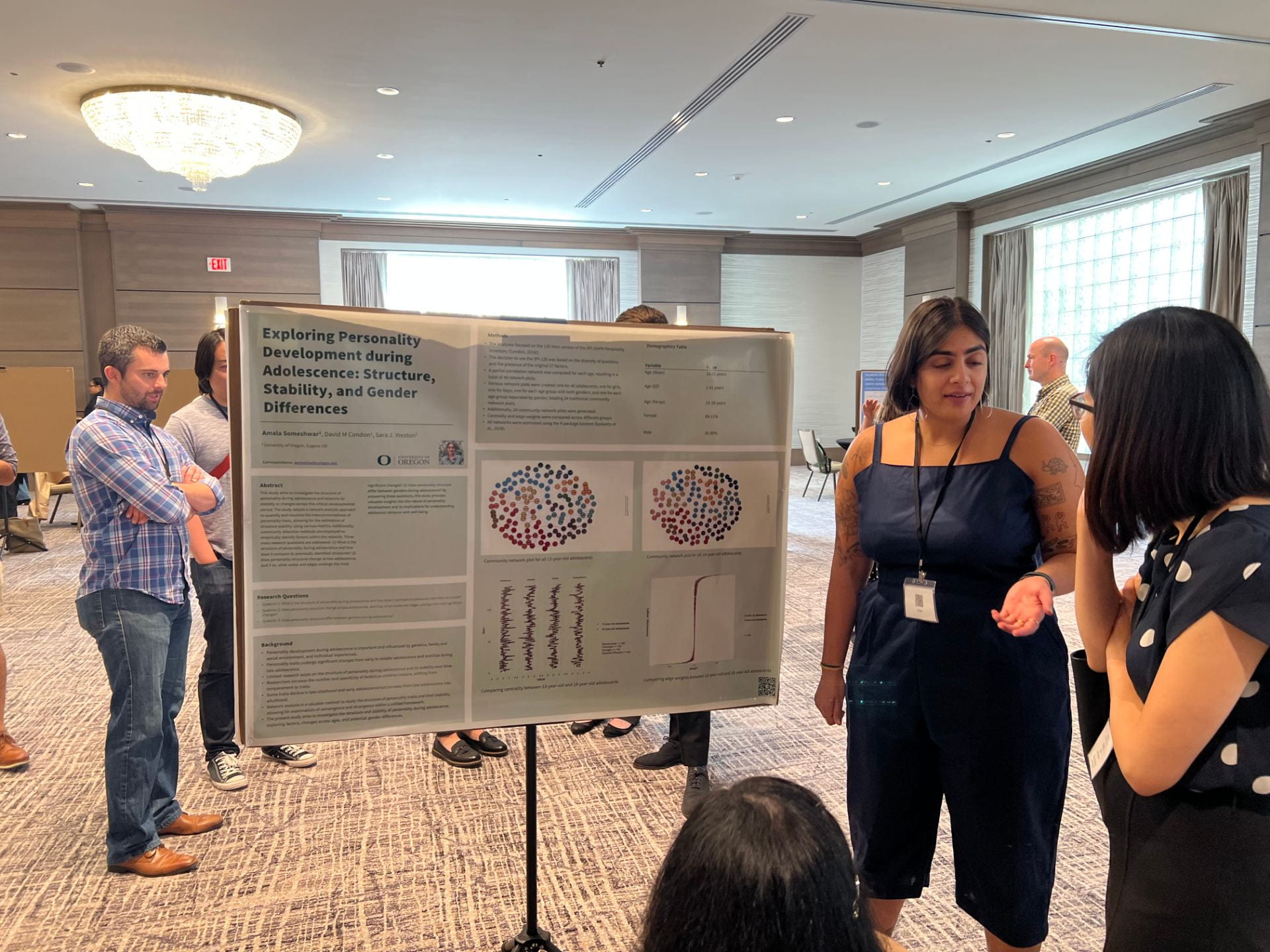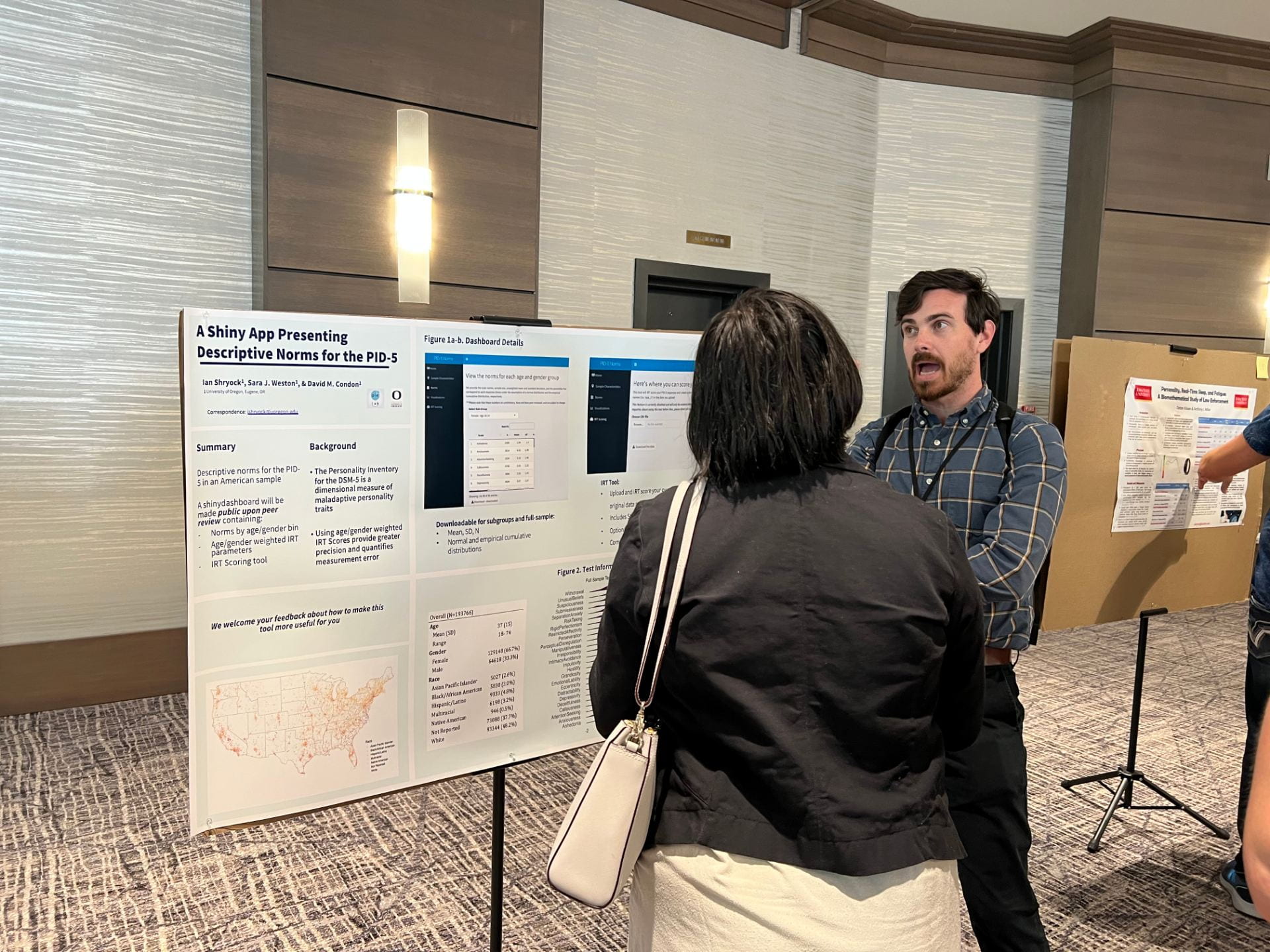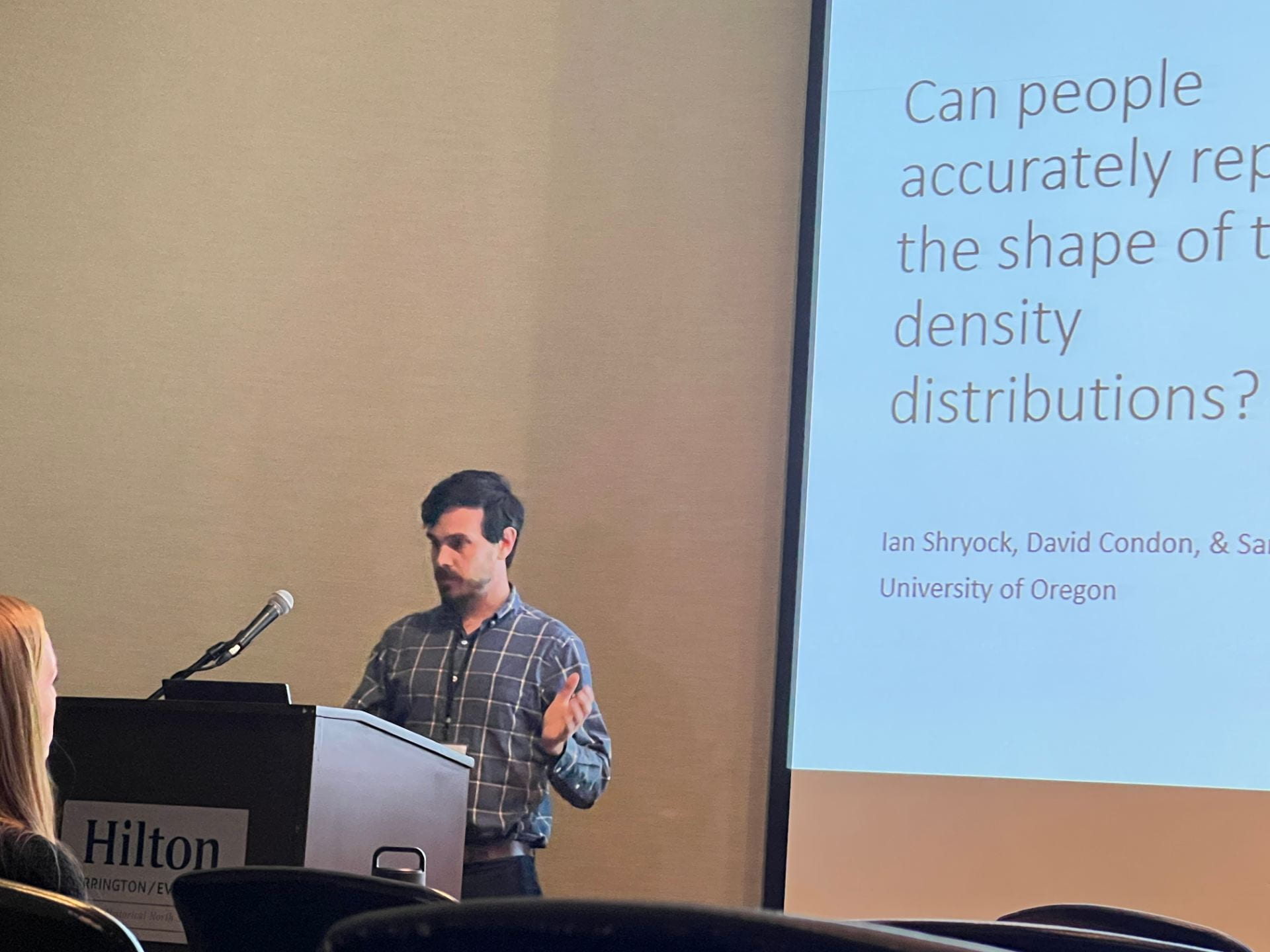At the heart of our research are basic questions: what is personality? How should we measure personality? How does personality change? How does personality affect the trajectory of one’s life?
Sometimes we ask these questions directly. Sometimes we situate our research in applied settings, primarily health and healthcare.
Our strength lies in the combination of a data-driven measurement-approach and a developmental approach to the influences on and of personality. Members of our lab have or will learn expertise in factor analysis, item-response theory, structural equation modeling, hierarchical linear modeling, and machine learning. We explore existing longitudinal datasets while also collecting large-scale datasets which represent both populations of people and the item-space of individual differences.
We value open science, and so we strive for transparency in all aspects of our research. For that reason, you’ll find us preregistering studies, posting data that we own, sharing analytic scripts, publishing preprints, and using and teaching with open software as much as possible.
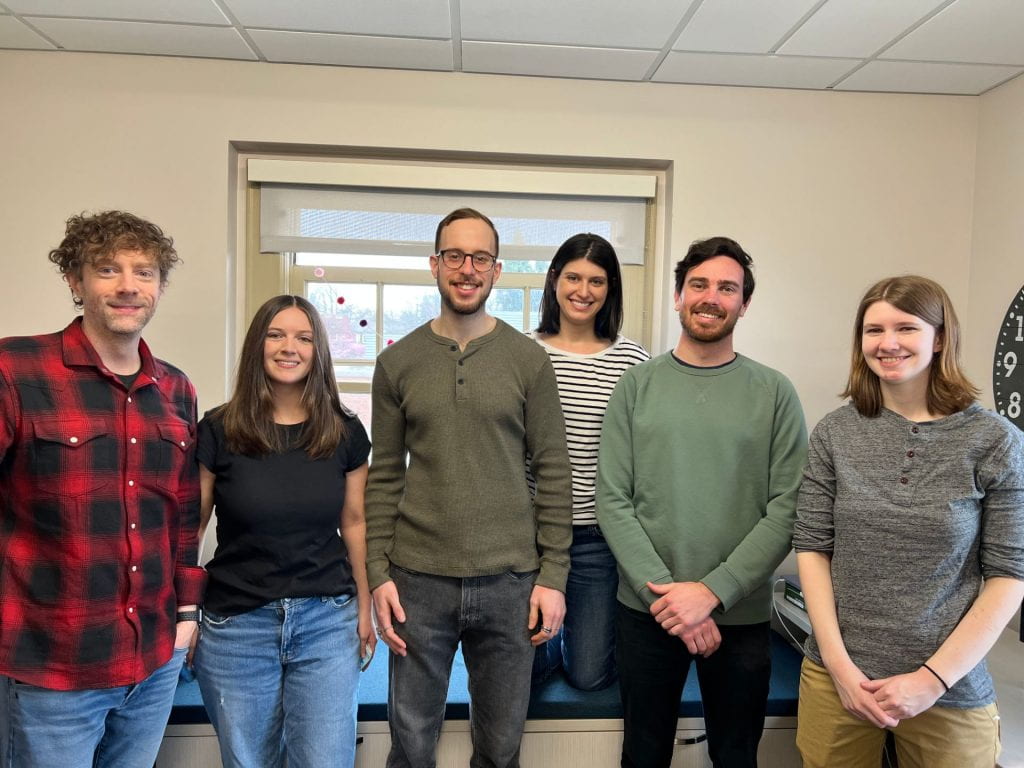
Presentations at the Association for Research in Personality (2023, Evanston)
The PIE lab was well represented at ARP with 9 presentations by 8 lab members!
Talks
- Are We Over-Reliant on the Big Five Traits? How We Got Here and What We Might Do About It — David Condon
- Can People Accurately Report the Shape of Their Density Distributions? — Ian Shryock
-
Using Structural Topic Modeling to Assess Macro-Level Themes in Ethnicity- Related Narratives — Rachel Jacobson
Posters
- An Item-level Method for Evaluating Measurement Invariance — Kendall Mather
- Structure of Personality During Adolescence — Amala Someshwar
- A Shiny App Presenting Descriptive Norms for the Personality Inventory for the DSM-5 — Ian Shryock
- Group Differences and Measurement Invariance of a Common Measure of Burnout Between Foreign and US-born Healthcare Providers — Dillon Welindt
- Picturing the Worst: The Relationship between Imagination and Maladaptive Personality — Andrew Castillo
- Personality Traits and Glucose Management Among People With Type 1 Diabetes — Sara Weston

